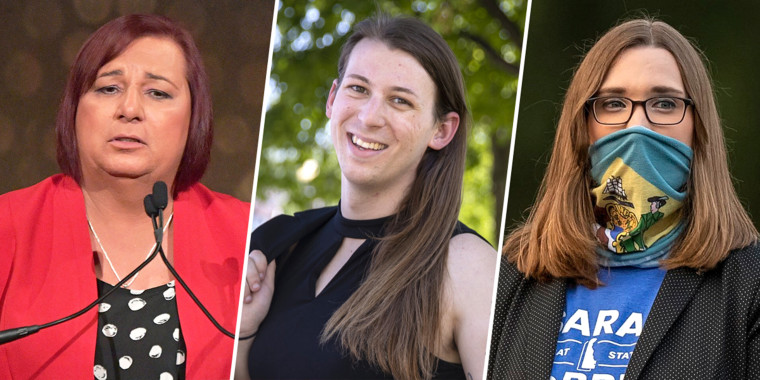Voters in six states handed eight transgender, nonbinary and gender-nonconforming candidates victories in state legislatures this week.
These candidates were on the ballot in at least 13 state House and Senate elections Tuesday. Three of the country’s four current transgender state legislators — Brianna Titone of Colorado and Gerri Cannon and Lisa Bunker of New Hampshire — all won re-election. The fourth, Virginia Delegate Danica Roem, who in 2017 became the first openly transgender person elected to a state legislature, is up for re-election next year.
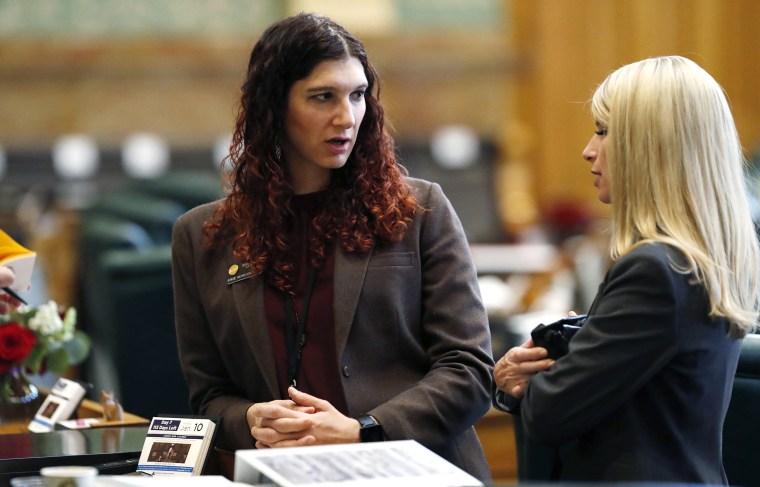
At least five others, including an incumbent who was not previously out as gender-nonconforming, won Tuesday, bringing the total number to at least nine once they all take office.
Among the winners is Sarah McBride, a Delaware Democrat, who made history as the first transgender person elected to a state Senate. She will also become the country’s highest-ranking transgender elected official once she takes office.
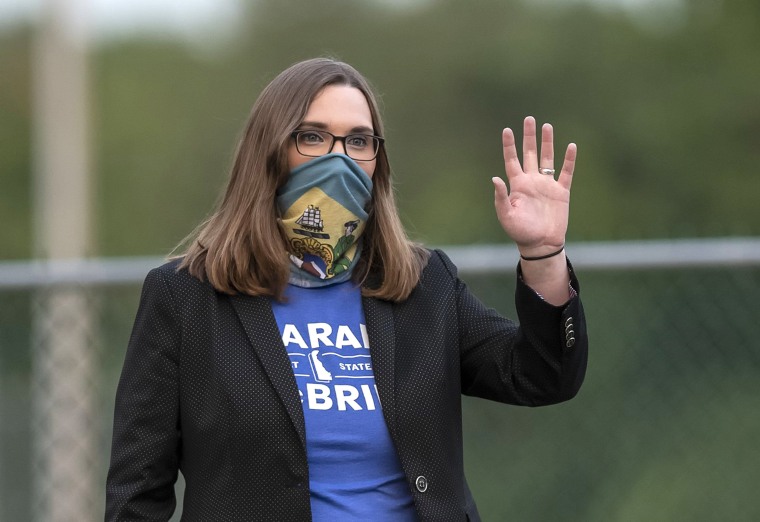
In an interview with NBC News after her victory, McBride downplayed the role her gender identity played in the issue-based campaign, but stressed that her win proves “democracy is big enough” for any young person struggling with gender identity. She said the main issues she wishes to tackle upon getting to the statehouse are passing universal pre-K and universal paid family and medical leave.
“I'm proud of my identity, and I'm grateful for the experiences, the lessons and the relationships it has brought me,” McBride said. “We can't create public policy that meets the needs of a diverse community if we don't have the full diversity of that community participating in the conversation. Me being trans is one part of who I am, and it's a part of who I am that I'm going to be proud to bring to that conversation.”

Joshua Query was an incumbent legislator in New Hampshire’s statehouse but came out as gender-nonconforming during their first term. Query was re-elected to the statehouse as New Hampshire’s first genderqueer representative by a slim margin of 34 votes.
While in Concord, Query hopes to continue as chair of the legislature’s transportation committee and to work on dismantling some of the Legislature’s gendered dresscode policies, which Query views as stifling.
“We have a fairly strict, but not written down, dresscode in the House, in which anyone who is deemed male has to be wearing a jacket and tie, and we stick to very old-fashioned rules where women must ask the speaker to allow us to take off our jackets,” Query said. “You know, to enforce people to stick to these gendered kinds of clothing ideas is something that I want to work with leadership and the rest of my LGBTQ caucus in fixing those issues for future legislators.”
In neighboring Vermont, Taylor Small became the first transgender person elected to the state Legislature. Her platform includes expanding access to health insurance for those affected by the coronavirus pandemic, and ensuring local issues in her constituency were heard in the statehouse.
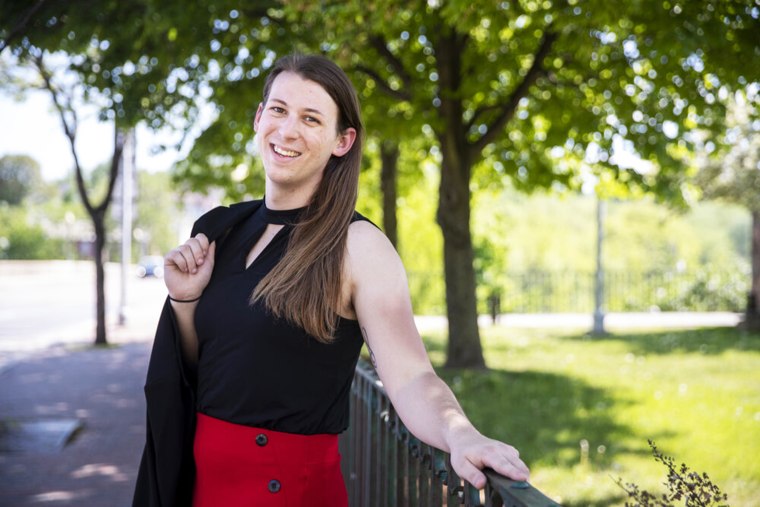
For Small, having run an issues-based campaign does not mean that her identity will be absent from political decisions at the Statehouse. In fact, she says her trans identity will help serve as a reminder that marginalized identities can be elected, and their perspective can only help in crafting legislation.
“I am hoping that this run will inspire more folks one or two years from now to run and serve as a legislator, serve on a school board or serve on town council,” Small said. “On a local level, we can make sure that we have these protective factors in place to keep our marginalized community safe.”
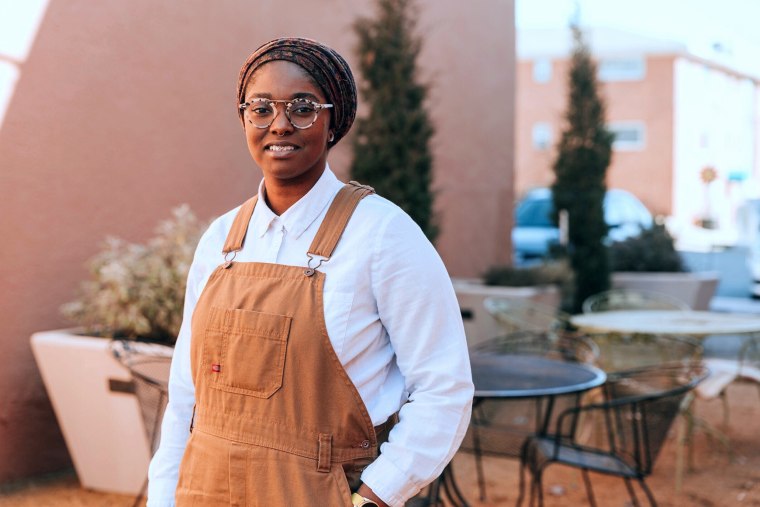
In Kansas and Oklahoma, trans and nonbinary people of color made history by being elected to each state’s Legislature.
Mauree Turner, who is nonbinary, Black and Muslim, won a seat in the Oklahoma House of Representatives, becoming the first nonbinary person elected to any state’s legislature.
And Stephane Byers won a seat in the Kansas House of Representatives, becoming the first transgender woman of color elected to any state legislature in the U.S.
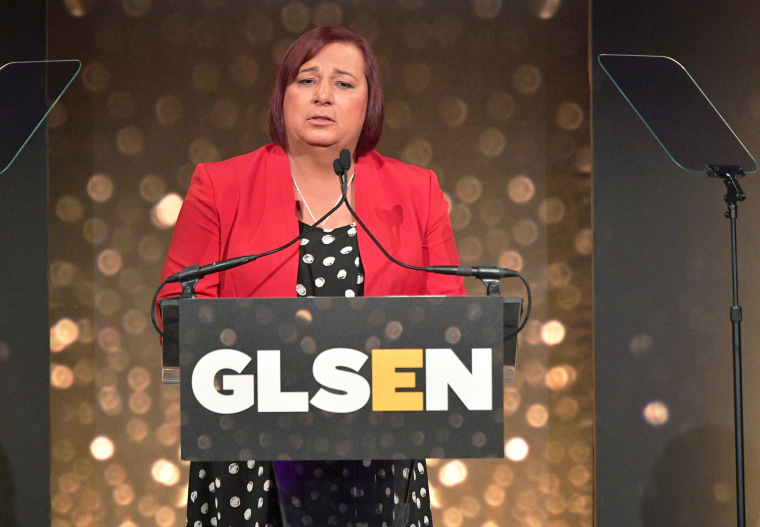
Byers, a member of the Native American Chickasaw Nation, said her win was surprising, but she relished that she had made history. A former public school teacher, she said her main priorities while in office will be funding public schools, expanding Medicaid in the state and working to increase broadband access to rural areas.
She credited her role as an activist with helping her make the decision to run for public office, and said that when campaigning in her district gender was rarely discussed.
“The ceiling here has been broken; Kansas has made history,” Byers said. “It’s surprising, and you know it's a tremendous thing.”
Elliot Imse, spokesperson for the the LGBTQ Victory Fund, which helps queer candidates get elected across the country, said that while those with marginalized genders are still underrepresented in all levels of government, Tuesday’s results show inroads are being made to change that and could inspire even more candidates to come forward.
“The impact each one of these elected officials can have on their communities extends well beyond a single vote or a single judicial ruling,” Imse said. “When a trans, gender-nonconforming or nonbinary voice is in the room, it changes hearts and minds and leads us closer to a more inclusive society.”
According to the Victory Fund, there are currently 39 elected transgender, nonbinary and gender-nonconforming elected public officials across the country.
This story originally appeared on NBCNews.com.
